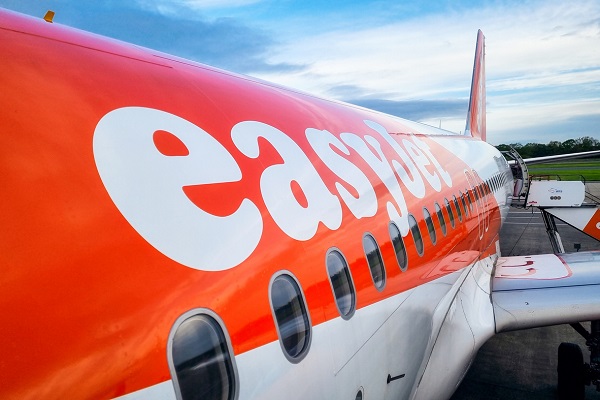easyJet's holidays unit stars as airline beats forecasts
These are strong annual results but the short-haul carrier's share price has failed to respond. ii's head of markets steers us through the numbers.
25th November 2025 08:21
by Richard Hunter from interactive investor

The share price has not tended to reflect the progress which easyJet (LSE:EZJ) has been making, but these numbers are a reminder that the group means business.
- Our Services: SIPP Account | Stocks & Shares ISA | See all Investment Accounts
Revenues of £10.1 billion and pre-tax profit of £665 million in the 12 months ended 30 September were both 9% higher than last year, and were also both ahead of expectations. This has been partly enabled by expansion in terms of its fleet as well as destinations, while two underperforming bases were closed in the period with the switch of aircraft to more profitable airports already paying dividends.
However, it is the easyJet holidays arm which has again stolen the show. This is a burgeoning business which seems to have come at the right time, with cost-conscious consumers searching for value packages. The group has high hopes for the unit’s longer-term contribution to overall profits, which currently accounts for 14% of total group revenue.
A 32% rise in pre-tax profit to £250 million means that the medium-term target has been hit early, resulting in a new target being set of £450 million of pre-tax profit by 2030. This part of the business is clearly on a roll, with a 20% increase in customers to 3.09 million alongside a 27% spike in revenues to £1.44 billion.
This also chimes with the group’s value-conscious appeal and the increasing body of evidence which suggests that the family holiday remains almost sacrosanct and outside of normal budgetary restraints. Nor is the group stopping there, with the previously announced tie-up with Tesco Clubcard putting the new brand in front of 23 million households. The immediate outlook for the holidays business is also looking bright, with 80% of first-half bookings for next year already sold and with the group estimating a further 15% rise in customers over the coming period.
- Insider: three CEOs exploit weak share prices
- 10 hottest ISA shares, funds and trusts: week ended 21 November 2025
- Autumn Budget countdown: four rumoured reforms
In addition, the benefit of increasing ancillary revenues, which include the likes of customer payments for personally allocated seats, baggage and food, were in evidence. Now accounting for 26% of group revenue, customers are clearly still readily prepared to pay for these extras, while also adding another string to the group’s revenue bow.
Elsewhere, the key metrics were robust, with passenger numbers up by 4.2% to 93.4 million, and with an increase of 3.5% of seats flown to 104,000, and a load factor of 89.8%. The group’s balance sheet also improved markedly, with net cash increasing from £181 million to £602 million, enabling a hike to the dividend which takes the projected yield to 2.7%, albeit somewhat pedestrian. An improvement of the return on capital employed (ROCE) from 16% to 18% was further evidence of tight capital management.
In terms of outlook, the group remains positive with the airline business already 81% sold for the first quarter, and with easyJet continuing to target £1 billion of pre-tax profit in the medium-term. This will not be a clear run necessarily, with the industrial action in France the latest reminder of a litany of woes which have affected the sector over the years, ranging from volcanic ash clouds and geopolitical tensions to virus outbreaks.
Yet for all the progress, the shares have fallen by 13% so far this year, putting easyJet potentially in the firing line for demotion from the FTSE100 in the upcoming December reshuffle. This has resulted in a dip of 7% over the last 12 months, which compares to a gain of 15% for the wider FTSE100.
- eyeQ: three hiding places as markets wobble?
- Fund Battle: technology funds, investment trusts and ETF options
- Sign up to our free newsletter for investment ideas, latest news and award-winning analysis
Indeed, the share price remains down by 60% from pre-pandemic levels, let alone the record highs of 10 years ago, since which time the shares have fallen by 70%, resulting in the group flitting in and out of the premier index.
Even so, it is difficult to dispute that easyJet continues its ascent, underpinned by increasing ancillary revenues and profits for the holidays business. The share price decline emboldens the group’s undemanding valuation which, coupled with optimism surrounding prospects for the sector as a whole, should enable the market consensus as a buy to remain intact.
That being said, a 54% increase in the share price of British Airways owner International Consolidated Airlines Group SA (LSE:IAG) over the last year underlines where investors’ priorities have tended to focus.
These articles are provided for information purposes only. Occasionally, an opinion about whether to buy or sell a specific investment may be provided by third parties. The content is not intended to be a personal recommendation to buy or sell any financial instrument or product, or to adopt any investment strategy as it is not provided based on an assessment of your investing knowledge and experience, your financial situation or your investment objectives. The value of your investments, and the income derived from them, may go down as well as up. You may not get back all the money that you invest. The investments referred to in this article may not be suitable for all investors, and if in doubt, an investor should seek advice from a qualified investment adviser.
Full performance can be found on the company or index summary page on the interactive investor website. Simply click on the company's or index name highlighted in the article.